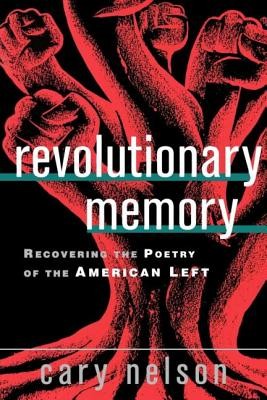
- We will send in 10–14 business days.
- Author: Cary Nelson
- Publisher: Routledge
- ISBN-10: 0415930057
- ISBN-13: 9780415930055
- Format: 15.6 x 22.9 x 1.6 cm, minkšti viršeliai
- Language: English
- SAVE -10% with code: EXTRA
Reviews
Description
Revolutionary Memory is the most important book yet to be published about the vital tradition of leftwing American Poetry. As Cary Nelson shows, it is not only our image of the past but also our sense of the present and future that changes when we recover these revolutionary memories. Making a forceful case for political poetry as poetry, Nelson brings to bear his extraordinary knowledge of American poets, radical movements, and social struggles in order to bring out an undervalued strength in a literature often left at the canon's edge. Focused in part of the red decade of the 1930s, RevolutionaryMemory revitalizes biographical criticism for writers on the margin and shows us for the first time how progressive poets fused their work into a powerful chorus of political voices. Richly detailed and beautifully illustrated with period engravings and woodcuts, Revolutionary Memory brings that chorus dramatically to life and set a cultural agenda for future work.
EXTRA 10 % discount with code: EXTRA
The promotion ends in 21d.06:55:20
The discount code is valid when purchasing from 10 €. Discounts do not stack.
- Author: Cary Nelson
- Publisher: Routledge
- ISBN-10: 0415930057
- ISBN-13: 9780415930055
- Format: 15.6 x 22.9 x 1.6 cm, minkšti viršeliai
- Language: English English
Revolutionary Memory is the most important book yet to be published about the vital tradition of leftwing American Poetry. As Cary Nelson shows, it is not only our image of the past but also our sense of the present and future that changes when we recover these revolutionary memories. Making a forceful case for political poetry as poetry, Nelson brings to bear his extraordinary knowledge of American poets, radical movements, and social struggles in order to bring out an undervalued strength in a literature often left at the canon's edge. Focused in part of the red decade of the 1930s, RevolutionaryMemory revitalizes biographical criticism for writers on the margin and shows us for the first time how progressive poets fused their work into a powerful chorus of political voices. Richly detailed and beautifully illustrated with period engravings and woodcuts, Revolutionary Memory brings that chorus dramatically to life and set a cultural agenda for future work.


Reviews